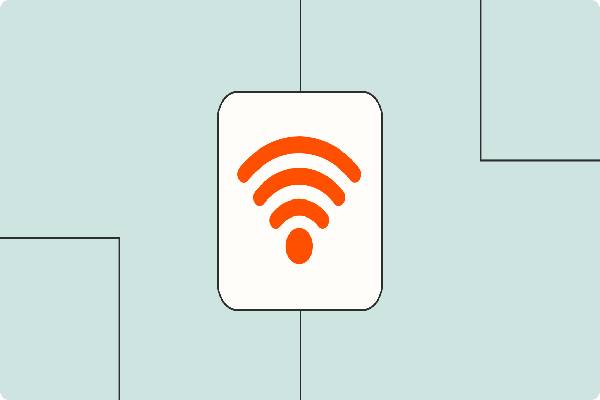Beyond Cryptocurrency

Beyond Cryptocurrency: Exploring Blockchain's Diverse Applications
Blockchain technology, originally designed to support
cryptocurrencies like Bitcoin, has rapidly evolved to become a versatile tool
with applications extending far beyond the world of digital currencies.
Blockchain's fundamental characteristics, including decentralization, immutability,
and transparency, have made it a game-changer in various industries. In this
article, we will delve into the diverse applications of blockchain technology
and how it is reshaping sectors such as finance, supply chain, healthcare, and
more.
Understanding Blockchain Technology
Blockchain is a decentralized and distributed ledger
technology that records transactions across a network of computers, ensuring
transparency and security. Key features of blockchain include:
- Decentralization:
Transactions are verified and recorded by a distributed network of nodes,
eliminating the need for a central authority.
- Immutability:
Once a transaction is added to the blockchain, it is cryptographically
sealed and cannot be altered, ensuring data integrity.
- Transparency:
All participants in the blockchain network can access and verify
transactions, increasing trust and reducing the risk of fraud.
- Smart
Contracts: Self-executing contracts coded into the blockchain automate
and enforce predefined rules and agreements.
Applications of Blockchain Beyond Cryptocurrency
- Supply
Chain Management:
Blockchain's transparency and traceability benefits make it
a powerful tool for supply chain management. It allows for the tracking of
products and materials at every stage, from raw materials to the end consumer.
This reduces fraud, counterfeiting, and ensures the authenticity and quality of
products. For instance, the food industry uses blockchain to trace the origin
of products and enhance food safety.
- Finance
and Banking:
Blockchain technology has disrupted the traditional
financial sector in several ways:
a. Cross-Border Payments: Blockchain enables faster
and more cost-effective cross-border transactions, reducing the reliance on
correspondent banks.
b. Digital Identity: Blockchain can provide
individuals with secure digital identities, streamlining customer onboarding
and reducing identity theft.
c. Smart Contracts: Smart contracts automate
financial agreements, such as loans and insurance policies, reducing the need
for intermediaries.
d. Tokenization: Assets like real estate and art can
be tokenized and traded on blockchain platforms, increasing liquidity and
access to previously illiquid assets.
- Healthcare:
The healthcare industry can benefit from blockchain's secure
and interoperable data-sharing capabilities. Patient records, medical
histories, and prescription data can be securely stored and accessed, reducing
data breaches and enhancing patient care. Moreover, blockchain can streamline
clinical trials, enabling better research and drug development.
- Government
and Public Records:
Governments can use blockchain for secure and transparent
record-keeping, from birth certificates to land deeds. This technology ensures
data integrity, reduces fraud, and increases trust in public records.
- Voting
Systems:
Blockchain can enhance the security and transparency of
voting systems. By providing tamper-proof records of votes, it reduces the risk
of election fraud. Estonia is one example of a country that has adopted
blockchain for secure e-voting.
- Energy
Sector:
Blockchain can optimize energy trading and distribution by
enabling peer-to-peer energy transactions. It can also be used to track
renewable energy generation and carbon credits.
- Intellectual
Property and Copyright Protection:
Artists, musicians, and creators can use blockchain to
protect their intellectual property rights and ensure fair compensation for
their work. Blockchain verifies ownership and records royalties efficiently.
- Education:
Blockchain can secure and streamline the verification of
academic credentials. Students can share their educational achievements with
potential employers securely.
Benefits of Blockchain Technology
- Enhanced
Security: Blockchain's immutability and cryptographic security make it
a robust tool for protecting data from tampering and unauthorized access.
- Reduced
Intermediaries: In many applications, blockchain eliminates the need
for intermediaries, reducing costs and increasing efficiency.
- Transparency
and Trust: Blockchain's transparency builds trust among participants,
as all parties can independently verify transactions.
- Efficiency:
Smart contracts automate complex processes, reducing the time and effort
required for agreement execution.
- Data
Integrity: Once data is added to the blockchain, it cannot be altered,
ensuring data integrity and reliability.
- Accessibility:
Blockchain democratizes access to financial services, assets, and
information, providing opportunities to the unbanked and underserved
populations.
Challenges and Considerations
- Scalability:
The scalability of blockchain networks can be a challenge, as increasing
the size of the blockchain can lead to slower transaction times and higher
energy consumption.
- Regulatory
Uncertainty: Regulatory environments for blockchain technology vary by
region and can impact the development and adoption of blockchain
applications.
- Data
Privacy: While blockchain provides transparency, it may conflict with
data privacy regulations, such as the European General Data Protection
Regulation (GDPR).
- Interoperability:
Different blockchain platforms may not easily communicate with each other,
limiting the potential for network effects.
- Energy
Consumption: Some blockchain networks, like Bitcoin, are
energy-intensive due to their consensus mechanisms. Sustainable
alternatives are being explored.
The Future of Blockchain Applications
- Interoperability
Solutions: Efforts are underway to create blockchain interoperability
solutions, enabling different blockchain networks to communicate and share
data.
- Regulatory
Clarity: As blockchain technology matures, governments will likely
establish clearer regulatory frameworks to encourage innovation while
ensuring consumer protection.
- Tokenization
and Digital Assets: The tokenization of physical assets, such as real
estate and art, is expected to grow, offering more opportunities for
investment and liquidity.
- Blockchain
in the Internet of Things (IoT): Blockchain can enhance the security
and interoperability of IoT devices and networks, ensuring trust and data
integrity.
- Decentralized
Finance (DeFi): DeFi platforms and applications that leverage
blockchain are likely to expand, offering more financial services without
traditional intermediaries.
Conclusion
Blockchain technology has transcended its original role in cryptocurrency and emerged as a transformative tool across multiple industries. Its ability to enhance security, transparency, and efficiency makes it an attractive solution for various applications, from supply chain management to finance and healthcare. While challenges and regulatory considerations remain, the potential for blockchain to redefine how we conduct transactions, manage data, and establish trust in various sectors is considerable. As blockchain continues to evolve, it has the potential to shape the future of technology and industry in ways we have yet to fully comprehend.

.jpg)